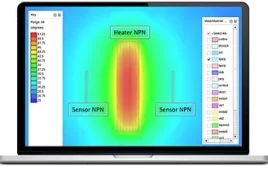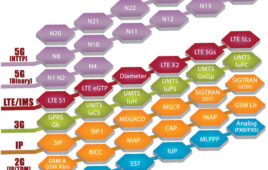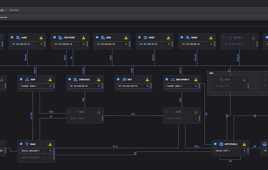Artificial Intelligence (AI) researchers certainly have a friend in Facebook. And a generous one at that.
In a town hall meeting live broadcast from Berlin on Wednesday, Facebook CEO Mark Zuckerberg announced the social media company has launched an initiative that will give AI researchers access to up to 200 graphics processing units (GPUs) to further their work.
Zuckerberg said the first project, which will use 32 GPUs, will focus on developing AI both for computational chemistry to help design better drugs for the healthcare field and a brain-computer interface that can interpret signals from the brain to muscles for better prosthesis. The research will take place in Germany, Zuckerberg said.
The decision to lend its resources to the research community came from Facebook’s recognition of the divide that exists between technological brain power and resources. While the brightest minds are often based out of universities, Zuckerberg said the infrastructure and financial resources necessary to carry out research are often held by businesses.
According to Zuckerberg, the move comes as part of Facebook’s push to establish itself as a full-fledged player in the technology field and shake its image as a media company.
“The reality is we’re not a content company, we’re not making that,” Zuckerberg said. “We’re a technology company building this infrastructure all over the world.”
Zuckerberg said Facebook is focused on furthering three main initiatives: AI, connectivity and next generation computing platforms.
The whole goal, Zuckerberg said, is to bring connectivity to the world and “give everyone the power to express anything that they’re thinking about or experiencing and want to share in the world.”
Zuckerberg said Facebook is continuing work on its solar-powered plane that can beam Internet down to the country below, but noted the company plans to make its product an open technology.
By lowering the cost to deliver network services to rural and sparsely populated areas, Zuckerberg said Facebook hopes to work with mobile providers and governments across the globe to bring the Internet to as many people as possible.
While trying to catch some populations up with existing technologies, Zuckerberg also said Facebook is looking to develop a next generation communication platform.
“As time goes on we see that people are getting the power to share what they’re seeing in richer and richer formats,” Zuckerberg said. “We’re now getting to a period where most of it is video, but that’s not the end of the line.”
Zuckerberg said he anticipates a future in which 360 degree scene capture will be available and virtual reality can offer experiences that don’t exist in the physical world. For examples, Zuckerberg used the ability to completely capture and share his child’s first steps or play zero or anti-gravity ping pong.
“I think that’s going to be pretty profound,” he said. “Not only being able to experience things in a visceral way, but also being able to construct new environments.”




